What is Artificial Intelligence?
Artificial Intelligence (AI) refers to the ability of machines to perform tasks that typically require human intelligence, such as understanding natural language, recognizing images, making decisions and learning from experience. AI algorithms are trained on large datasets and use statistical techniques to find patterns and insights that can be applied to new data. AI has the potential to transform many aspects of our lives, from healthcare and education to transportation and entertainment, by automating routine tasks, providing personalized experiences and helping us make better decisions.
What is Machine Learning?
Machine learning (ML) is a division of AI that involves training computer algorithms to make predictions or decisions based on data. Instead of explicitly programming a computer to perform a task, it is provided with a large amount of data and a way to learn from that data so that it can generalize to new situations. ML algorithms can be used to solve a wide range of problems, such as image recognition, language translation and fraud detection. ML differs from general AI in that it is focused on specific tasks rather than attempting to replicate broader human intelligence. While ML algorithms are capable of learning from data and making predictions or decisions based on that data, they are typically not able to perform a wide range of cognitive tasks that humans are capable of, such as reasoning, creativity or problem-solving outside of their specific domain of expertise. In other words, ML is a subset of AI that focuses on specific applications rather than trying to create a general-purpose intelligence.
How Can AI and ML Benefit My Business?
Businesses of all types and sizes that deal with data can benefit from the insights and automation offered by AI and ML. This includes industries such as finance, healthcare, retail, manufacturing and more. Benefits include optimizing operations, enhancing decision-making, improving customer experiences and reducing costs. At oxbrAIn, we offer a free consultation to help you determine if AI and ML are right for your business. During the consultation, we will discuss your business needs and goals and identify areas where AI and ML can be applied to achieve those goals.
How Do I Ensure the Security and Privacy of My Data?
At oxbrAIn, we take the security and privacy of your data seriously. We implement industry-standard security measures to ensure that your data is protected against unauthorized access, use or disclosure and is handled with care and in compliance with legal requirements. We also work closely with each client to establish clear policies and procedures around data handling and usage, including obtaining informed consent and providing transparency around data processing.
How Much Does It Cost to Implement AI and ML for My Business?
The cost of implementing AI and ML for your business varies depending on the scope of the project and the services required. At oxbrAIn, we provide customized solutions to meet the specific needs of each business and we offer transparent pricing to ensure that you know exactly what you’re paying for.
What is the AI Development Cycle?
The AI development cycle involves several key stages, including problem identification, data cleaning, data analysis, algorithm selection, model training, model evaluation and model deployment.
- Problem identification: Identifying the problem that the AI model will aim to solve, including defining the business problem, determining the scope of the project and identifying the data sources required.
- Data cleaning: The data that will be used to train the AI model must first be cleaned and processed to remove duplicates, fill in missing values and ensure that the data is in a format that can be used by the AI algorithms.
- Data analysis: Analysis of the data is crucial to identify patterns and insights that can be used to develop the AI model, including statistical analysis, visualization tools and other techniques to explore the data.
- Algorithm selection: Selecting the appropriate algorithms that will be used to develop the AI model depends on the type of problem being solved and the type of data being used.
- Model training: Training the AI model using the selected algorithm and the prepared data involves tuning the model parameters to optimize performance and minimize errors.
- Model evaluation: Evaluating the performance of the trained AI model focuses on testing the model on new data to ensure that it performs accurately and identifying areas for improvement.
- Model deployment: Deploying the AI model in a production environment involves integrating the model into existing systems and processes, monitoring its performance and making ongoing improvements as needed.

